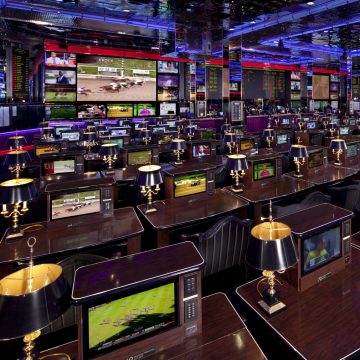
Connecticut approved a legal sports betting bill this week, in case the U.S. Supreme Court rules in favor of New Jersey’s challenge of the PASPA sports betting law. At the moment, it is still illegal under federal law to operate a sportsbook in the state.
The bill Gov. Dan Malloy signed this week is an addendum to the bill signed on June 27 to authorize the East Windsor casino, a satellite casino in a Hartford suburb. This later addition sets up the framework for legal sports betting, while also expanding off-track betting.
Connecticut’s two gaming interests, the Mohegan Tribe and the Mashantucket Pequot (Foxwoods) Tribe, will own the East Windsor casino in a joint venture.
House Bill 6948: Legal Sportbooks
House Bill 6948 would make it legal for Foxwoods Casino and Mohegan Sun to operate sportsbooks out of their casinos. The legislature passed HB 6948 in both houses in June 2017, while Gov. Dan Malloy signed the bill into law this week.
The key passage of HB 6948 states, “The Commissioner of Consumer Protection shall adopt regulations, in accordance with the provisions of chapter 54 of the general statutes, to regulate wagering on sporting events to the extent permitted by state and federal law.”
Mississippi Sports Gambling
Connecticut’s legislature took a step similar to Mississippi’s lawmakers, which last month passed an amendment to the 1990 Mississippi Gaming Act to legalize sports betting. Like the bill Gov. Malloy signed, Mississippi’s sports betting legalization only applies if the federal ban on sports gambling is struck down by the nation’s highest court.
1992 PASPA: Federal Ban on Sportsbooks
The Professional and Amateur Sports Protection Act of 1992 (PASPA) dictates the current federal laws on sports betting. PAPSA was passed by the United States Congress at the insistence of the major American sports leagues: the NFL, the NBA, the NHL, and Major League Baseball. The leagues insisted the integrity of their sports were at stake, while public confidence in the legitimate outcome of sporting events would be affected if no action was taken.
At the time, the leagues wanted a 50-state ban on sports gambling. The four states which had legal sports betting lobbied against PASPA. In a compromise, those four states had their regulated sports wagers grandfathered in to PASPA. Nevada gained the sole right to operate legal sportsbooks, while Oregon, Montana, and Delaware maintained the right to operate a more limited form of sports betting — the parlay-type wagers called “sports lotteries”.
In the remaining 46 states, sports betting of any kind was outlawed. To avoid the kind of favoritism in interstate commerce which was prohibited under the Commerce Clause of the U.S. Constitution, the Congress gave states one year to pass pro-sports betting laws. None did.
New Jersey’s Challenge of PASPA
In 2012, New Jersey mounted a challenge to PASPA. Due to the Global Recession, further decline from Hurricane Sandy’s impact on New Jersey, and the legalization of slots gambling at racinos and casinos in Pennsylvania, Atlantic City casinos were facing serious trouble. Two initiatives — sports betting and online gambling — were championed by Gov. Chris Christie as the ways to save Atlantic City’s gaming economy.
The sports leagues sued New Jersey, seeking to enforce the PAPSA’s provisions. Over the past 5 years, the sports league have won 5 separate court decisions, including judgments and appeals. In June 2014, the US Supreme Court declined to hear a previous appeal involving PAPSA by New Jersey. Earlier this summer, the Supreme Court agreed to hear New Jersey’s appeal of an August 2016 decision by the 3rd Circuit Court of Appeals in Philadelphia.
In August 2017, New Jersey and the sports leagues are expected to file legal briefs with the US Supreme Court. In October 2017, the justices will hear arguments in the case. Sometimes after oral arguments are heard, the justices will hand down a ruling.
Connecticut’s Waning Casino Industry
Like New Jersey’s casino industry, Connecticut’s casino operations have been damaged by market saturation. As New York State and Massachusetts have developed their own domestic casino industries, fewer New Yorkers and Bostonians have visited Mohegan Sun and Foxwoods. The ability to operate sportsbooks out of those casinos would be a major boon to the debt-strapped Native American casinos. Foxwoods and Mohegan Sun are thought to owe more than $2 billion in debt.
The East Windsor casino itself is an attempt to shore up the Connecticut casino industry. Massachusetts approved a billion-dollar integrated casino-resort in Springfield: the MGM Springfield Casino.
A Possible East Windsor Sportsbook
Because the MGM Springfield is much closer to Hartford than either Mohegan Sun or Foxwoods Casino, many Hartford-area gamblers would be tempted to drive out-of-state to gamble. To assure that does not happen, the Connecticut legislature approved the joint venture by Mohegan Sun and Foxwoods. If the Supreme Court struck down PASPA, House Bill 6948 would allow the East Windsor casino to operate a legal sportsbook, too.















